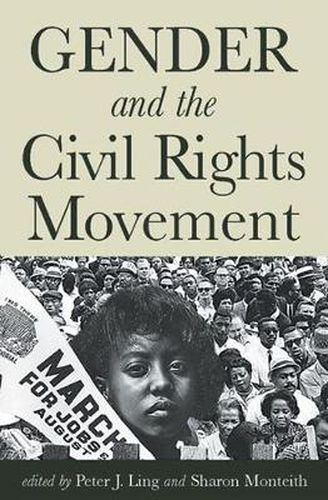Readings Newsletter
Become a Readings Member to make your shopping experience even easier.
Sign in or sign up for free!
You’re not far away from qualifying for FREE standard shipping within Australia
You’ve qualified for FREE standard shipping within Australia
The cart is loading…






This book is a collection of nine essays that analyse the people, the protests and the incidents of the civil rights movement through the lens of gender. More than just a study of women, the book examines the ways in which assigned sexual roles and values shaped the strategy, tactics and ideology of the movement. The essays deal with topics ranging from the Montgomery bus boycott and Rhythm and Blues to gangsta rap and contemporary fiction, from the 1950s to the 1990s. Referring to groups such as the National Council of African American Men and events such as the Million Man March, the authors address male gender identity as much as female, arguing that slave/master relations carried over from before the Civil War continued to affect Black masculinity in the post-war battle for civil rights. Whereas feminism traditionally deals with issues of patriarchy and prescribed gender roles, this volume shows how race relations continue to complicate sex-based definitions within the civil rights movement.
$9.00 standard shipping within Australia
FREE standard shipping within Australia for orders over $100.00
Express & International shipping calculated at checkout
This book is a collection of nine essays that analyse the people, the protests and the incidents of the civil rights movement through the lens of gender. More than just a study of women, the book examines the ways in which assigned sexual roles and values shaped the strategy, tactics and ideology of the movement. The essays deal with topics ranging from the Montgomery bus boycott and Rhythm and Blues to gangsta rap and contemporary fiction, from the 1950s to the 1990s. Referring to groups such as the National Council of African American Men and events such as the Million Man March, the authors address male gender identity as much as female, arguing that slave/master relations carried over from before the Civil War continued to affect Black masculinity in the post-war battle for civil rights. Whereas feminism traditionally deals with issues of patriarchy and prescribed gender roles, this volume shows how race relations continue to complicate sex-based definitions within the civil rights movement.